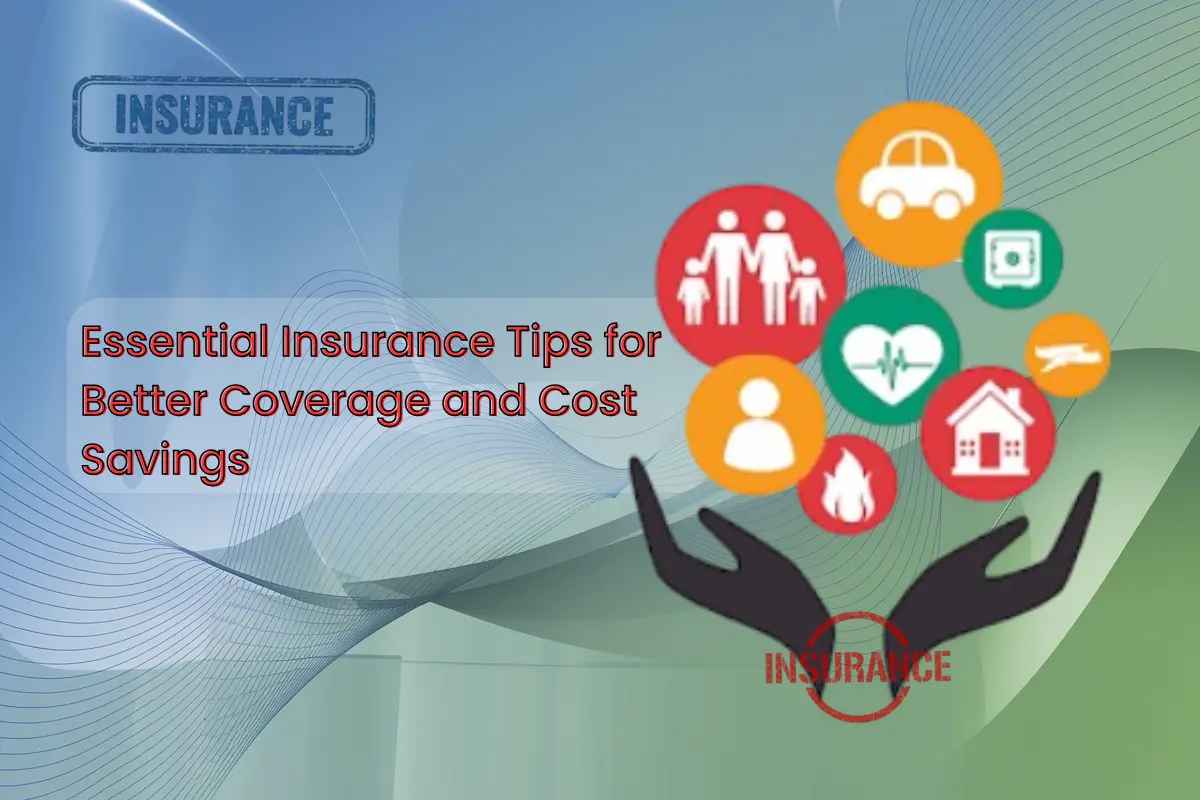Choosing the right insurance policy is more important than ever, given the wide range of options available and the importance of ensuring your assets and health are fully protected. Whether you are seeking coverage for your car, home, health, or life, understanding how to maximize your insurance benefits while minimizing your premiums is key to making the best choice.
In this blog post, we will provide valuable insurance tips that help you get better coverage and achieve cost savings without compromising on protection.
1. Assess Your Insurance Needs Thoroughly
Before you start shopping for insurance, it’s critical to evaluate your personal needs. Insurance is not one-size-fits-all, so understanding what type of coverage you need will prevent you from overpaying for unnecessary policies.
- Actionable Tip: Make a list of your assets, liabilities, and any unique risks, such as the need for flood coverage or life insurance for dependents. This will allow you to target policies that are essential for your specific situation.
2. Compare Multiple Quotes from Different Providers
The insurance market is competitive, with various providers offering different pricing and coverage options. Shopping around for quotes allows you to compare premiums and coverage features, ensuring you select the best deal.
- Actionable Tip: Use online comparison tools to obtain quotes from multiple insurers. Don’t just focus on the lowest price—look at the policy features to ensure you are getting comprehensive coverage.
3. Take Advantage of Discounts and Special Offers
Insurance companies often provide discounts that can significantly reduce your premiums. From bundling policies to loyalty rewards, these offers can help you save money.
- Actionable Tip: Ask your insurer about potential discounts like multi-policy bundles, good driver discounts, or home security discounts. Many companies offer savings if you are a long-term customer or if you pay premiums annually rather than monthly.
4. Consider Increasing Your Deductible
Increasing your deductible (the amount you pay out-of-pocket before insurance coverage kicks in) is an effective way to reduce your monthly premium. However, it’s important to ensure that you can comfortably cover the higher deductible in the event of a claim.
- Actionable Tip: Evaluate your financial situation to determine how much you can afford to pay in the event of a claim. Increasing your deductible by even a small amount can have a significant impact on lowering your premium.
5. Review and Update Your Policy Regularly
As your life changes—whether through marriage, the birth of a child, or purchasing a new home—it’s important to revisit your insurance policies. Regularly reviewing your coverage ensures that your policy reflects your current needs and helps you avoid paying for unnecessary coverage.
- Actionable Tip: Set an annual reminder to review your policies. This will help you ensure your coverage is up-to-date and that you’re not overpaying for outdated policies or unused add-ons.
6. Maintain a Strong Credit Score
Your credit score can play a significant role in the rates you pay for many types of insurance, particularly auto and homeowners insurance. A higher credit score typically results in lower premiums, so maintaining a good score can save you money.
- Actionable Tip: Pay off outstanding debts, stay on top of your bills, and regularly check your credit report to ensure there are no errors that could affect your score.
7. Consult with an Insurance Agent for Expert Advice
If navigating insurance policies feels overwhelming, consulting an experienced insurance agent can be an invaluable resource. Agents can help you understand complex terms, recommend the right coverage for your situation, and assist with claims when necessary.
- Actionable Tip: Reach out to a licensed insurance agent to discuss your options, especially if you are looking for specialized coverage like business insurance or long-term care. They can guide you to policies that fit both your needs and budget.
8. Understand the Terms and Conditions of Your Policy
Before committing to any insurance policy, it’s essential to understand the fine print. Pay attention to coverage limits, exclusions, and any additional fees that might apply.
- Actionable Tip: Read your policy carefully, and if something is unclear, ask your insurance provider to explain. Understanding the exclusions and limitations in your policy will help you avoid surprises when you need to file a claim.
Conclusion: Make Informed Insurance Decisions
Securing the right insurance coverage is an essential step toward protecting yourself and your assets. By following these expert insurance tips, you can save money, avoid unnecessary coverage, and ensure you’re properly protected. Remember to assess your needs, compare quotes, utilize discounts, increase your deductible if appropriate, and consult with experts to make the best possible insurance decisions.
Start by reviewing your current policies today to see where you can optimize your coverage and save on premiums.




